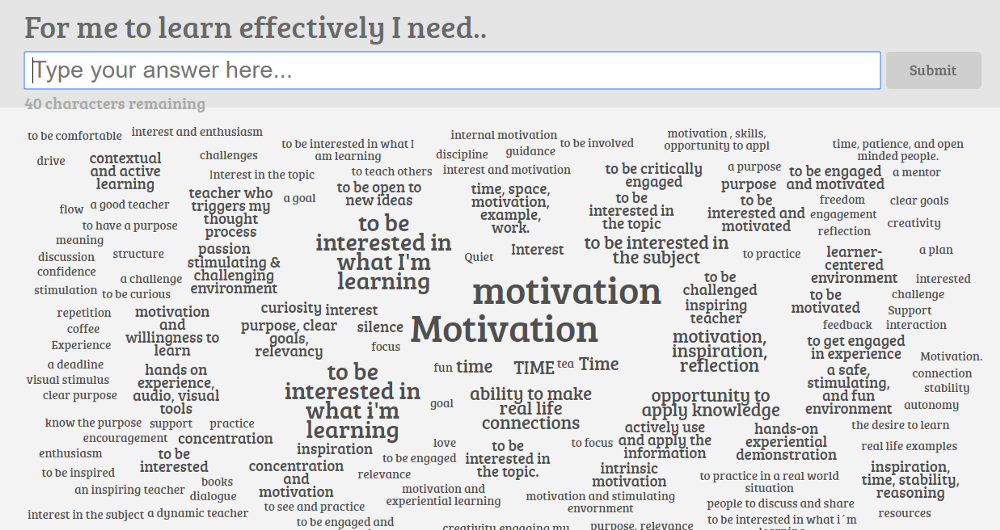ORIGINALLY WRITTEN: OCTOBER 5, 2018
By: Anne Noah
What is the future of education?
Hey guys!
I started an online course recently and while my peers are in week 3, I am dragging my feet to look at the questions for the first week *sigh*. I have been procrastinating for the longest time, maybe it’s because I’m letting the questions stew in so I can understand it all better or maybe it’s because I’m lazy- we’ll never know
The course is titled “The Future of Education” and I would be required to keep a learning journal for 6 weeks. So first of all, what’s a learning journal?!
A learning journal is used by students to analyze their learning strategies, reflect on what they find academically challenging, and utilize their critical thinking skills. It gives students to be actively involved in their education.
I’m fascinated by how humans learn, how unique this process is for each person and how we don’t really realize or utilize this. Over time there been arguments on how to measure learning and transfer knowledge. I love the description of the psychologist, Alison Gopnik who described parenting (also applicable to teachers) as a case of a carpenter or a gardener. The carpenter is very rigid and adamant about how the learning process and outcomes should be- rather authoritarian, while the garden is very nurturing; creating a conducive environment for learning, aware and accepting of the possibility of change and very open to the idea of the individuality of each flower; knowing that they can’t all turn out the same.
Here’s how she put it:
… essentially your job is to shape that material into a final product that will fit the scheme you had in mind to begin with. And you can assess how good a job you’ve done by looking at the finished product. Are the doors true? Are the chairs steady? Messiness and variability are a carpenter’s enemies; precision and control are her allies. Measure twice, cut once….
When we garden, on the other hand, we create a protected and nurturing space for plants to flourish. It takes hard labor and the sweat of our brows, with a lot of exhausted digging and wallowing in manure. And as any gardener knows, our specific plans are always thwarted…. And yet the compensation is that our greatest horticultural triumphs and joys also come when the garden escapes our control. (Gopnik 2016: 22)
Although people seem to think there will always be a need for the carpenter’s approach, it goes without saying that we all ought to be gardeners. What do you think?
For my first entry, I was also asked two questions:
- Based on your experience as a learner, what do you think you will be able to get out of this course?
As a lifelong learner, I believe this course would equip me with more efficient methods of learning which will translate to having richer experiences while I acquire knowledge. It will also give me a gift I can share with others, be it teachers or students- an opportunity to shed off obsolete practices.
2. What have ideas do you already have about the future of education?
There are countless possibilities when we allow the human mind to explore a certain concept rather than when one is told how to think of it. I believe that in the future, education would more “forgiving”. A safe space to try new things, make mistakes and question the things that are unclear.
Education of the future would be the breeding ground for innovation and not the “killer of dreams”. I believe it would be more practical and challenging. There would be more collaborative learning and children would be given a chance to reflect and give an account of how they perceive concepts. It would be an environment where the teacher and the student are constantly learning and unlearning. Upgrading thought patterns and sharing knowledge in a more meaningful way- for in-depth learning by stimulating and engaging the mind rather than conditioning it to pass tests and stack up grades that will eventually mean nothing if there is no retention.
A place where social skills such as patience, tolerance, leadership, and hard work would find full expression and transcend beyond the four walls of the classroom. Education of the future would do what education was meant to do all this time- prepare world leaders one classroom at a time.
Most teachers teach based on how they themselves have been taught or based on what they think is right. If you ask me, I’d say the carpenters can become gardeners if we improve our communication with them and constantly try to show them that things can be done differently.



Leave a Reply